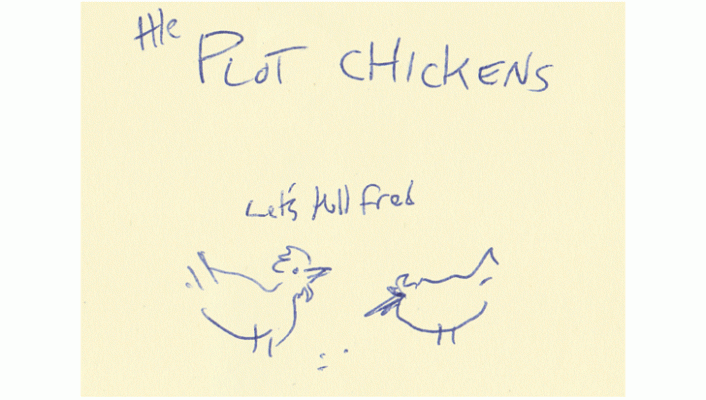My sister signed up for an intensive boot-camp style workout program, and they also emphasize diet.
The diet recommendations include not eating chicken, on the theory that even organic chicken is contaminated or modified in some way. The trainer hasn't been completely clear on exactly what the problem is. Things she's said include:
- "real" chickens are naturally scrawny. Therefore any time you see a large, plump chicken, even if it's marked organic, it's not possible that it's really completely organic
- because chickens have been treated with hormones so long (attempting to make them plump), this has somehow fundamentally changed them, so that pretty much regardless of what "lineage" they come from, it's not what "real" chickens used to be
- even organic farms can't really guarantee that their feed isn't contaminated in some way (such as with hormones), which is why even organic chicken isn't really ok
- One type of chicken that is ok is something like Amish chickens, because they've stayed away from modern farming methods and presumably used more or less the same stock of chickens for decades/generations
She is looking for other opinions about this. Anyone know anything about chicken?
The diet recommendations include not eating chicken, on the theory that even organic chicken is contaminated or modified in some way. The trainer hasn't been completely clear on exactly what the problem is. Things she's said include:
- "real" chickens are naturally scrawny. Therefore any time you see a large, plump chicken, even if it's marked organic, it's not possible that it's really completely organic
- because chickens have been treated with hormones so long (attempting to make them plump), this has somehow fundamentally changed them, so that pretty much regardless of what "lineage" they come from, it's not what "real" chickens used to be
- even organic farms can't really guarantee that their feed isn't contaminated in some way (such as with hormones), which is why even organic chicken isn't really ok
- One type of chicken that is ok is something like Amish chickens, because they've stayed away from modern farming methods and presumably used more or less the same stock of chickens for decades/generations
She is looking for other opinions about this. Anyone know anything about chicken?


